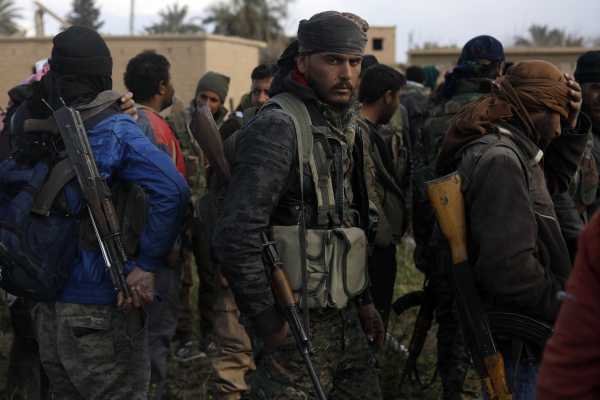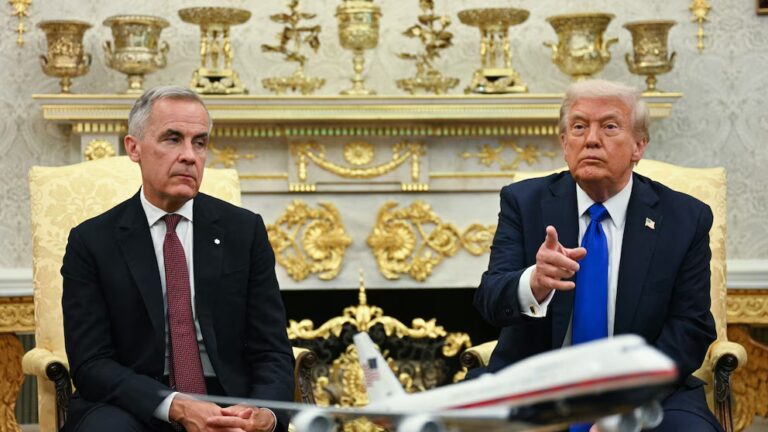
President Donald Trump announced the death of elusive ISIS leader Abu Bakr al-Baghdadi during a press conference on Sunday morning. After that announcement, however, national security experts, lawmakers, and members of the Trump administration cautioned that Baghdadi’s death does not mean the fight against ISIS is over.
Appearing on ABC News’ This Week, Secretary of Defense Mark Esper argued “leadership makes a difference,” with respect to ISIS, and that removing a group’s head will have a significant effect on its functioning.
“Al-Baghdadi was the founder of ISIS. He formed the caliphate. He was an inspirational leader in addition to being a thug and a murderer,” Esper said. “So when you take out a leader like that, it’s going to have, I think, a major impact on the organization.”
Esper did caution, however, that the US and its allies will need to keep pressure on the organization: “Our job is to stay on top of that and make sure that we continue to take out their leadership and organizations,” he said.
This sentiment was mirrored in a statement from Secretary of State Mike Pompeo, who called the leader’s death “a great day for United States,” but said “there is still work left to do to ensure ISIS’s enduring defeat.”
Trump allies like Sen. Lindsey Graham (R-SC) gave similar assessments. Speaking from the White House briefing room shortly after Trump wrapped up his own statement, the senator said, “The war is by no means over,” but added: “The caliphate is dead and the leader of the caliphate is dead, and that’s a big deal.”
Rep. Adam Schiff (D-CA), who chairs the House Intelligence Committee told This Week, “It’s an operational success. It’s a symbolic victory. Not the end of ISIS by any means.”
“It’s a major milestone, and it’s one we should all be welcoming, but it doesn’t mean that the fight against ISIS is over, and it doesn’t mean that we can declare mission accomplished,” former UN Ambassador Susan Rice, who also served as US National Security Advisor under President Barack Obama from 2013 to 2017, said on CBS’ Face the Nation.
Although their leader is dead, thousands of ISIS members remain
The news of Baghdadi’s death has been tempered with concern about ISIS in part because of what intelligence experts have said about the group’s remaining capabilities.
For instance, according to a Pentagon report from August, there are likely between 14,000 and 18,000 ISIS “members” in Iraq and Syria, including some 3,000 foreigners. The group has financial holdings in Libya and central Africa, according to that same report, and followers in Europe and elsewhere.
Also of concern is the role conflict in Syria may have on the terrorist organization. Over the last several weeks, US forces began withdrawing from northern Syria, and Turkish military forces launched an incursion into that territory. That Turkish invasion led to armed conflict and reported atrocities in predominantly Kurdish towns in the area. In some places, Kurdish military forces, who had been primarily responsible for guarding detention centers that held captured ISIS fighters, left their posts to engage Turkish forces, and it is estimated at least 100 ISIS prisoners escaped.
At his Sunday press conference, Trump denied any connection between the raid and the recent events at the Syrian border. Vice President Mike Pence made a similar denial on Face the Nation, arguing that Baghdadi’s death was part of America’s anti-ISIS mission, but maintaining a military presence on Syria’s northern border was not.
“The president looked at the deployment of American forces in between traditionally Kurdish Syria and the Turkish border, and … believed that was not the right place for our forces to be,” Pence said.
“By killing the active operational leader of ISIS … we believe we’ll have a measurable impact on the effectiveness of that terrorist organization,” he went on. “But we’re not going to let up, we’re going to continue to work with our allies to establish that safe zone between Kurdish Syria and Turkey.”
Democrats and some security experts disagreed with this sentiment, however. Schiff argued that the recent border conflict instead undermined the fight against ISIS.
“We’ve had some recent serious setbacks with the release of over 100 ISIS fighters,” Schiff said. “That struggle is going to have to go on, made more difficult by the fact that we have betrayed the Kurds and withdrawn our forces from part of Syria, but nonetheless this is an important victory.”
Rice likewise cautioned that removing a US presence from a tumultuous area would allow the group to simply reform under new leadership.
“You can’t take the pressure off and expect these groups not to reconstitute,” she said. “They may come back with a different name and a different leader, but the ideology remains and the ambition remains.”
“We need to be vigilant, we need to maintain a minimal presence in order to ensure that the pressure stays on ISIS and they don’t come back roaring,” she added. Rice also argued that the withdrawal of US troops could allow Russia and Turkey and their interests to fill that void in the region.
It remains to be seen how much Baghdadi’s death ultimately affects ISIS. However, given that other terrorist organizations like al-Qaeda have survived the deaths of their leaders, and given the concern of officials and experts, it is unlikely ISIS will disappear.
As Michael Leiter, who led the National Counterterrorism Center during the Osama bin Laden raid, told Vox’s Alex Ward, “Terror organizations rise and fall based on a variety of factors and it is quite clear that ISIS is not one that will end through decapitation of its leadership. Just as we eliminate Baghdadi we have allowed a new generation of ISIS to escape and reform in a way that means we will face ISIS’ threat for many years.”
Listen to Today, Explained
ISIS has lost its leader, but that doesn’t mean the world is any safer.
Subscribe to Today, Explained wherever you get your podcasts, including: Apple Podcasts, Google Podcasts, Spotify, Stitcher, and ART19.
Sourse: vox.com






